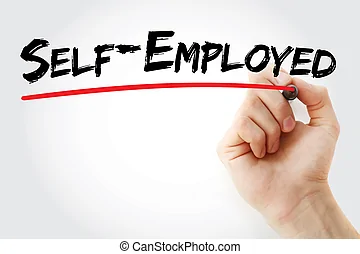Self-Employment is increasingly common in Singapore. As at 2021, more than 13% of the resident workforce in Singapore fall into this category. In this article, we will summarize everything you need to know about income tax in Singapore if you are Self-Employed.

Are you considered self-employed in the eyes of IRAS?
Before we even dive in to the income tax details, we should first establish if you even fall into this category of tax payers. Generally, if you are a sole-proprietor or partner registered with the Accounting and Corporate Regulatory Authority (ACRA), you are considered self-employed.
As a rule of thumb; if you perform work for others as a form of service rather than work under the control of an employer, you are considered a self-employed person.
Some of the most common groups of self-employed are:
- Real Estate & Insurance Agents
- Partners registered with ACRA in a partnership
- Private tutors, Delivery riders, Designers
What are your Tax Obligations?
First thing you need to know is this, the income from your business operations are considered ‘Business Income’ and not salary. This is a common misconception by many business owner.
A simple way to understand this; CPF will need to be contributed if you receive a salary, if you are not contributing CPF, you are not receiving a salary.
The business income that you receive will be taxed based on the individual income tax rates.
What is your accounting period?
The accounting period is usually a 12 month period which you compute your profit or losses.
While you are free to decide on your accounting period, almost all businesses that we work with go with 31 December as the end of their financial period.
This is simply to align with the calendar year basis that is used for personal income tax computation in Singapore.
Keeping proper records and accounts
As a self-employed person, you are required to maintain proper records of your business transactions. This applies to all records that are related to your business income including but not limited to Sales as well as Expenses.
You do not need to submit these records to IRAS, however, you may be required to provide these information upon request by the authorities.
If you are not sure how to maintain proper accounting records, you can refer to this free tool here.
Information to prepare when filing income tax return
- 2-line statement
If your revenue is less than SG$200,000;
First line – Revenue
Second line – Adjusted Profit/loss
- 4-line statement
If your revenue is more than SG$200,000;
First line – Revenue
Second line – Gross Profit/Loss
Third line – Allowable Business Expenses
Fourth line – Adjusted Profit/Loss
Filing your Income Tax
Income Tax filing in Singapore usually starts in the beginning of the year, you should receive a typically by 15 March.
Filing income tax in Singapore is typically quite straightforward as our tax system is fairly simple. Most questions that you would have can be answered through the IRAS main website.
Conclusion
If you are self-employed and looking to figure out how to handle your Income Tax in Singapore, this article should cover most of what you need to know.
If you find that this article has been helpful for you, check our youtube channel for more useful tips on managing your income tax in Singapore.

